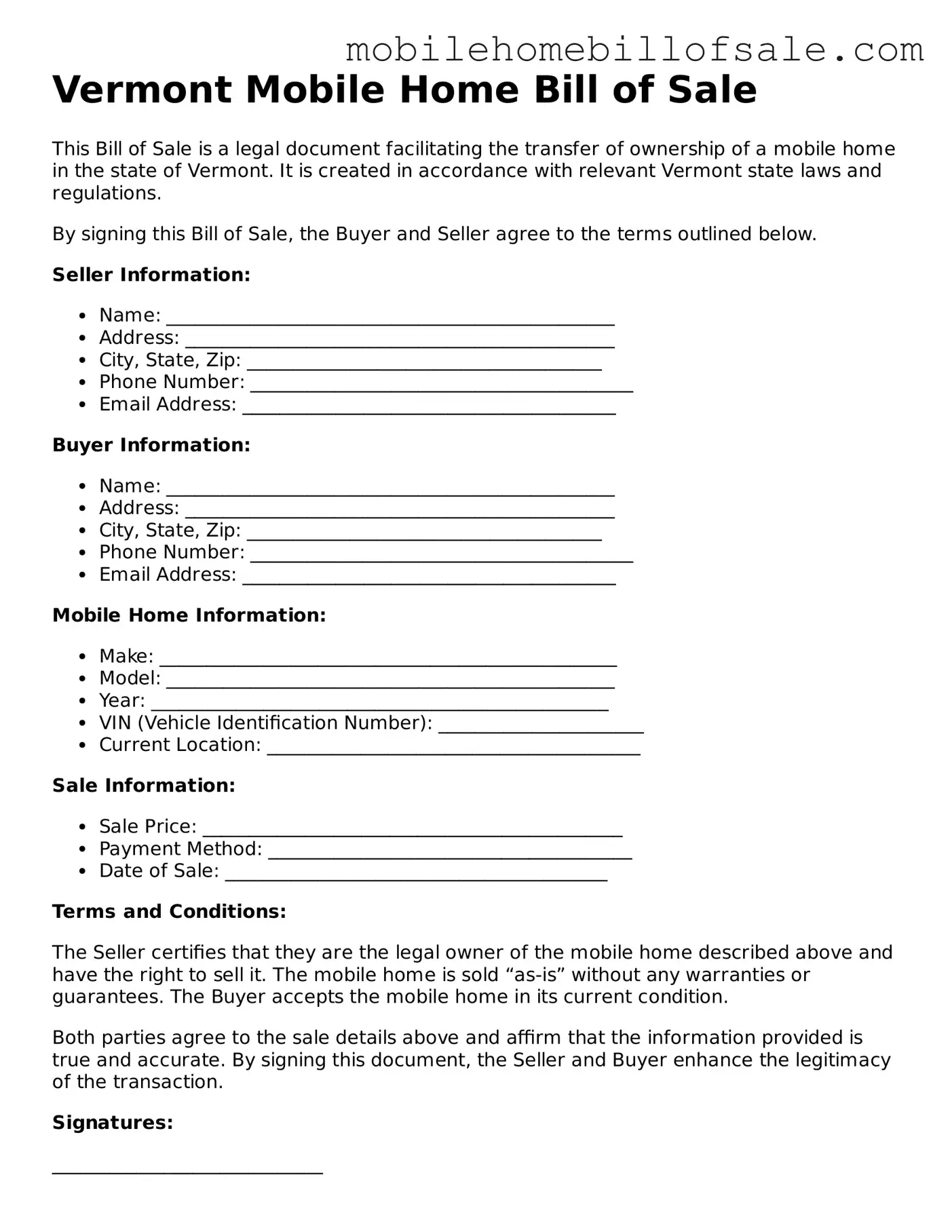The Vermont Mobile Home Bill of Sale form is similar to a standard Vehicle Bill of Sale. Both documents serve as proof of transfer of ownership for a specific item. They include essential details such as the buyer's and seller's names, the description of the item, and the sale price. This ensures that both parties have a clear record of the transaction, which can be important for future reference or legal purposes.
Another document that shares similarities is the Boat Bill of Sale. Just like the Mobile Home Bill of Sale, this form outlines the transfer of ownership from one party to another. It typically contains information about the boat's make, model, and identification number. This helps establish a clear chain of ownership and is often required for registration purposes.
The Equipment Bill of Sale is also comparable. This document is used when transferring ownership of heavy machinery or tools. It includes details such as the equipment's serial number, condition, and sale price. Both the Mobile Home and Equipment Bills of Sale aim to provide a clear record of the transaction, protecting both the buyer and seller in case of disputes.
A similar document is the Motorcycle Bill of Sale. This form functions similarly by documenting the sale of a motorcycle. It includes buyer and seller information, vehicle details, and the sale price. Like the Mobile Home Bill of Sale, it serves as a legal record of ownership transfer and may be necessary for registration with state authorities.
The RV Bill of Sale is another document that resembles the Mobile Home Bill of Sale. This form is used for the sale of recreational vehicles. It contains similar elements, such as the buyer and seller's names, vehicle specifications, and the sale amount. Both documents aim to formalize the transfer of ownership and provide legal protection for both parties involved.
Additionally, the Personal Property Bill of Sale is akin to the Mobile Home Bill of Sale. This document can be used for various types of personal property transactions, including furniture and electronics. It typically includes details about the item being sold, the sale price, and the parties involved. This ensures that all transactions are documented, which can be crucial for resolving any potential disputes.
Lastly, the Lease Agreement can be considered similar in some aspects. While it primarily outlines the terms of renting a property, it also includes details about the parties involved and the property description. Both documents serve to clarify ownership rights and responsibilities, although one is focused on sale and the other on leasing. Clear documentation helps avoid misunderstandings and provides a legal framework for the agreement.

